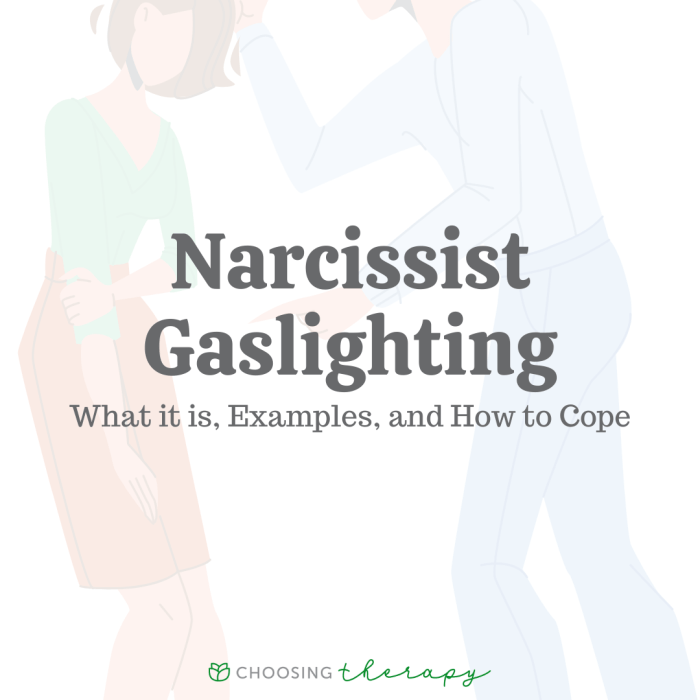Ever felt like you were drowning in a relationship, but couldn’t quite put your finger on why? Maybe you’ve been caught in the web of a narcissist, a master manipulator who thrives on making you feel like you’re losing your mind.
It’s like being trapped in a reality show where you’re the only one who’s not getting the script right.
From the subtle gaslighting that makes you question your own sanity to the rollercoaster of emotions that leaves you exhausted, narcissistic abuse is a sneaky and insidious game. But don’t worry, you’re not alone. We’re diving deep into the world of narcissists and their victims, exploring how to recognize the signs, break free from their clutches, and reclaim your power.
Breaking Free from Narcissistic Abuse

It’s time to reclaim your power and break free from the chains of narcissistic abuse. You’re not alone in this journey, and with the right knowledge and support, you can heal and move on to a brighter future.
Recognizing Narcissistic Abuse
Narcissistic abuse can be insidious and difficult to identify, but understanding the common signs can help you break free. Narcissists often engage in a pattern of manipulative behaviors that can erode your self-esteem and leave you feeling trapped.
- Gaslighting:This is a form of manipulation where the narcissist tries to make you question your own sanity. They might deny things they said or did, or twist events to make you feel like you’re the one who’s wrong.
- Love Bombing:In the beginning of a relationship, the narcissist may shower you with excessive attention and affection, making you feel like you’ve found your soulmate. However, this is often a facade to control you.
- Triangulation:The narcissist might try to create drama by involving other people in your relationship. They might talk about you to others, or use other people to make you jealous.
- Emotional Abuse:Narcissists are often emotionally abusive, using insults, criticism, and threats to control and manipulate you.
- Isolation:The narcissist may try to isolate you from your friends and family, making you dependent on them.
Escaping Narcissistic Abuse
Leaving a narcissistic relationship can be challenging, but it’s crucial for your well-being. It’s important to remember that you deserve to be treated with respect and kindness.
- Recognize the Abuse:The first step is to acknowledge that you are in an abusive relationship. Don’t minimize or dismiss the narcissist’s behavior.
- Seek Support:Talk to a trusted friend, family member, therapist, or support group. Having a support system can make a world of difference.
- Create a Safety Plan:If you are in immediate danger, call 911. Otherwise, develop a plan for leaving the relationship safely. This might include finding a safe place to stay, securing financial resources, and gathering important documents.
- Go No Contact:This means completely cutting off all communication with the narcissist. This is crucial for your healing and to prevent further manipulation.
- Focus on Yourself:Use this time to reconnect with yourself and your values. Engage in activities that bring you joy and help you heal.
Resources for Victims of Narcissistic Abuse
There are many resources available to help victims of narcissistic abuse.
- Therapy:Therapy can provide a safe space to process your experiences and develop coping mechanisms. Look for a therapist who specializes in narcissistic abuse.
- Support Groups:Connecting with others who have experienced narcissistic abuse can provide validation, support, and a sense of community.
- Legal Assistance:If you are experiencing legal issues, such as custody disputes or financial abuse, seek legal advice from an attorney.
Self-Care and Healing After Narcissistic Abuse
Healing from narcissistic abuse is a process, not an event. It takes time, patience, and self-compassion.
- Practice Self-Care:Engage in activities that nurture your physical, emotional, and mental well-being. This might include exercise, healthy eating, spending time in nature, or pursuing hobbies.
- Set Boundaries:Learn to establish healthy boundaries with others, including family and friends. This means saying no to requests that make you uncomfortable and protecting your time and energy.
- Challenge Negative Thoughts:Narcissistic abuse can leave you with low self-esteem and negative thoughts. Challenge these thoughts by focusing on your strengths and accomplishments.
- Seek Professional Help:Don’t hesitate to seek professional help from a therapist or counselor. They can provide support, guidance, and tools for healing.
Book Review: “Gasping for Air”

“Gasping for Air: The Stranglehold of Narcissistic Abuse” by [Author Name] is a powerful and insightful exploration of the devastating effects of narcissistic abuse. The book delves into the complexities of narcissistic relationships, providing a comprehensive understanding of the dynamics at play and the psychological impact on victims.
The Book’s Central Themes and Arguments
The book’s central argument is that narcissistic abuse is a form of emotional and psychological manipulation that can have profound and lasting consequences on victims’ lives. The author skillfully unravels the intricate web of narcissistic behaviors, highlighting the insidious nature of their manipulation tactics.
Narcissistic abuse is like being trapped in a suffocating fog, where your voice gets lost and your sense of self gets crushed. If you’re ready to break free from that toxic haze, Download And Listen Here to gain some real-life insights and strategies for reclaiming your power.
You deserve to breathe freely and live a life filled with genuine connection and self-love.
“Gasping for Air” emphasizes the importance of recognizing the signs of narcissistic abuse and understanding the patterns of behavior that characterize these relationships.
Narcissistic abuse is a real-life horror show, leaving victims gasping for air. But you know what’s a great way to escape the drama? Coloring! Check out the Horror Movie Coloring Book Fun and Relaxing Coloring Book for Teens and Adults for some spooky fun that’ll help you unwind and channel your inner artist.
It’s like a therapy session, but with way more gore (and way less drama!). Just remember, you’re not alone, and escaping the grip of narcissistic abuse is possible.
The Author’s Writing Style and Storytelling
The author’s writing style is engaging and accessible, making complex psychological concepts relatable to a wide audience. The book employs a blend of personal anecdotes, expert insights, and practical advice to guide readers through the process of understanding and recovering from narcissistic abuse.
Narcissistic abuse can feel like a suffocating fog, making it hard to breathe. It’s like you’re drowning in a sea of manipulation and gaslighting. But taking a break to color in the magical jars from Magic Jars A Coloring Book for Adults Featuring Cute Jars with Fun Fantasy Characters Adorable Animals and Enchanting Scenes for Stress Relief and Relaxation can be a great way to escape the chaos and find some inner peace.
It’s like stepping into a whimsical world where you can let your creativity flow and reclaim your sense of self.
The author’s use of vivid imagery and compelling storytelling helps to bring the experiences of narcissistic abuse to life, fostering empathy and understanding among readers.
Comparison with Other Literature on Narcissistic Abuse
“Gasping for Air” distinguishes itself from other literature on narcissistic abuse by its comprehensive approach, addressing not only the psychological impact of abuse but also the practical steps victims can take to heal and rebuild their lives. The book delves into the intricacies of narcissistic personality disorder, providing a nuanced understanding of the motivations and behaviors that drive these individuals.
Additionally, “Gasping for Air” offers a unique perspective on the societal implications of narcissistic abuse, highlighting the systemic factors that contribute to its prevalence.
Personal Reflections on the Book’s Impact
“Gasping for Air” has had a profound impact on my own understanding of narcissistic abuse. The book provided me with a much-needed framework for processing my own experiences and recognizing the patterns of manipulation that I had been subjected to.
Narcissistic abuse can leave you feeling like you’re drowning, gasping for air. It’s a tough situation, but you’re not alone. Remember, you deserve to be happy and healthy. Check out these Colorful Affirmations Embrace Positivity 50 Beautiful Coloring Pages Inspiring Happiness for All Ages for a little pick-me-up.
They can help you rediscover your inner strength and reclaim your life. You are worthy of love and respect, and you can break free from the cycle of abuse.
The author’s insights and practical advice have been invaluable in my journey of healing and recovery. “Gasping for Air” is a must-read for anyone who has been affected by narcissistic abuse, offering both solace and a roadmap for reclaiming their lives.
Ultimate Conclusion

Remember, you’re not defined by the abuse you’ve experienced. You are strong, resilient, and capable of healing. Like a phoenix rising from the ashes, you can rebuild your life and create a future filled with love, respect, and authenticity.
So, take a deep breath, and let’s start the journey to reclaim your power and breathe freely again.
Frequently Asked Questions
Is it possible to change a narcissist?
Unfortunately, changing a narcissist is incredibly difficult. They rarely see their behavior as a problem and often resist any attempts at change. It’s best to focus on your own well-being and escape the situation.
What if I’m still in a relationship with a narcissist?
Leaving a narcissist can be scary, but it’s the safest and healthiest option. Seek support from friends, family, or a therapist. There are also resources like hotlines and support groups available.
How do I know if I’m being gaslighted?
Gaslighting involves manipulating someone into questioning their own sanity. Look for patterns of denial, distortion of reality, and attempts to make you doubt your own memories and perceptions.

